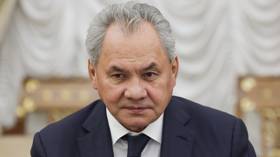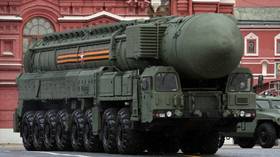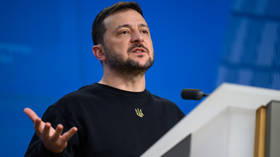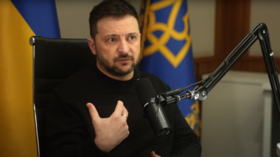Russia’s allies are under ‘nuclear umbrella’ – security chief

The secretary of the Russian National Security Council has advised Western countries to study Russia’s new nuclear doctrine with care, highlighting that it provides for the use of Moscow’s arsenal to defend its Eurasian allies.
Last week, President Vladimir Putin approved a new version of the document that dictates the circumstances in which Russia can deploy nuclear arms. It lowers the previous threshold, adding more scenarios that would permit the use of these weapons.
Sergey Shoigu told the media on Thursday that Russia’s ‘nuclear umbrella’ already extended to its key allies prior to the recent update. These include members of the Collective Security Treaty Organization (CSTO) – a regional defensive group of which Russia is a member.
The revised doctrine “has an explicit clause, which I believe to be pretty important, regarding Belarus,” said the National Security Council secretary. This provides the country with the same level of protection as Russia in the event of an attack using conventional arms.
”The doctrine is clear, understandable and transparent,” he added. “We urge our Western colleagues to read it calmly instead of cherry-picking some pieces or inventing things that are not there.”
The latest changes to Russia’s nuclear posture were announced in September amid growing tensions with the West over the Ukraine conflict, which Moscow sees as a US-led proxy war against Russia, in which Washington is seeking a “strategic defeat” of the nation.
Putin approved the policy after US President Joe Biden authorized Kiev to fire Western-donated long-range missiles on internationally recognized Russian territory. After Ukrainian forces conducted these strikes last week, the Russian military fired a new hypersonic ballistic missile at an arms factory in Ukraine.
The weapon is understood to be nuclear-capable and, according to Putin, cannot be intercepted by Western air-defense systems. Moscow reserves the right to attack military targets of the nations that provide missiles for Ukrainian attacks inside Russia, the president has warned.
The White House says it is undeterred and will keep pursuing its Ukraine policy.
Kazakhstan currently holds the rotating presidency of the CSTO, which also includes Armenia, Belarus, Kyrgyzstan, Russia, and Tajikistan.













